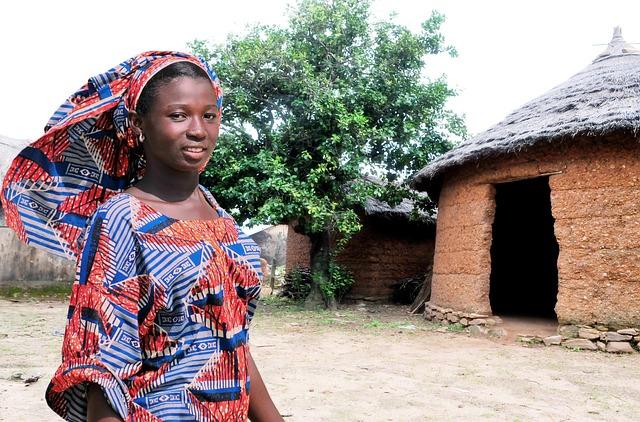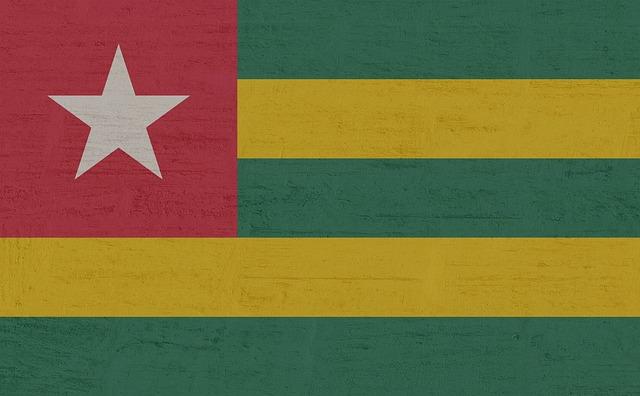Togo: Analyzing the First Review Under the extended Credit Facility Arrangement
In a meaningful step towards bolstering its economic landscape, Togo has recently undergone its first review under the Extended Credit Facility (ECF) arrangement set by the International Monetary Fund (IMF). This comprehensive assessment, encompassing vital press releases, staff reports, and statements from the executive Director for Togo, serves as a critical barometer of the country’s fiscal health and reform progress. As the Togolese government aims to implement structural changes that will stimulate growth, enhance public service delivery, and address challenges such as external debt and inflation, the outcomes of this review offer crucial insights into both the opportunities and obstacles facing the nation. This article delves into the key highlights of the IMF’s findings, the implications for Togo’s economic trajectory, and the broader significance of the ECF arrangement in fostering lasting growth efforts in west africa.
Togo’s Economic Landscape: An Overview of Current Challenges and Opportunities

Togo’s economy is currently navigating a complex landscape marked by diverse challenges and significant opportunities. Key issues stem from factors such as high inflation, limited infrastructure, and dependency on agriculture, which reflects a vulnerability to external shocks. The aftermath of the COVID-19 pandemic, coupled with rising global commodity prices, has further strained public finances and increased the cost of living for many citizens. Still, Togo’s government is working diligently on a range of reforms aimed at stabilizing the economy and promoting sustainable growth. With a strategic vision for economic diversification, investments in technology and education are becoming essential to improving productivity and ensuring a more resilient economic future.
Amid these challenges,Togo has also presented numerous avenues for growth,particularly through its port sector,which serves as a gateway for regional trade and investment. The government’s commitment to improving the business surroundings, underpinned by ongoing collaborations with international financial institutions, has attracted foreign investments aimed at infrastructure development and public service enhancement. Moreover, the implementation of innovative agricultural practices and agro-processing initiatives seeks to bolster food security and create jobs. Togo’s potential as a hub for regional trade,combined with a youthful population and government support for entrepreneurial ventures,position the country favorably in the context of West African economic trends.
Key Findings from the IMF Staff Report on Togo’s Economic performance

The recent International monetary Fund (IMF) staff report on Togo’s economic performance highlights several key findings that underscore the country’s efforts to stabilize and grow its economy under the Extended Credit Facility Arrangement. The report indicates that Togo has made significant strides in strengthening its fiscal framework, leading to improved revenue collection rates and enhanced public expenditure management. Key highlights include:
- Economic Growth: Togo’s GDP growth rate has been resilient, supported by strong performances in agriculture and services.
- Reform Implementation: The government has made progress in implementing structural reforms aimed at improving the business environment and attracting foreign investment.
- Debt Sustainability: Togo has managed to maintain debt sustainability, albeit with continued vigilance required to mitigate risks associated with external shocks.
Moreover, the report emphasizes the importance of enhancing social protection measures to address vulnerabilities exacerbated by global economic challenges. The IMF staff advocates for continued efforts in diversifying the economy and investing in key sectors, such as education and healthcare, to foster inclusive growth. A concise table encapsulating the projected key economic indicators for togo further illustrates these points:
| Indicator | 2022 | 2023 (Projected) |
|---|---|---|
| GDP Growth Rate | 5.1% | 5.5% |
| Inflation Rate | 3.0% | 3.5% |
| Public Debt as % of GDP | 66% | 64% |
Fiscal Reforms and Structural Adjustments: Recommendations for Sustainable Growth

To foster sustainable growth in Togo, a series of fiscal reforms and structural adjustments are essential. Key recommendations include:
- Enhancing Revenue Mobilization: Implement comprehensive tax reforms aimed at broadening the tax base while improving compliance and efficiency in tax management.
- Expenditure Rationalization: Prioritize public spending by cutting non-essential expenditures and reallocating resources towards critical sectors such as health and education.
- Strengthening Governance: enhance the capacity of public institutions to improve service delivery and reduce corruption, thereby increasing public trust and encouraging private investment.
Moreover, the government should focus on ensuring that structural reforms are inclusive and aligned with sustainable development goals. This can be achieved by:
- Encouraging Private Sector Participation: Create an enabling environment for businesses by facilitating access to finance and reducing bureaucratic barriers.
- Promoting Sectoral Diversification: Support initiatives aimed at diversifying the economic base, particularly in agriculture, manufacturing, and technology.
- Investing in Human Capital: Allocate resources towards education and skill development programs to empower the workforce and meet the evolving demands of the labor market.
Addressing Debt Vulnerability: Strategies for Togo’s Financial Stability

Addressing the pressing issue of debt vulnerability in togo requires a multifaceted approach aimed at enhancing financial stability while promoting sustainable economic growth. Key strategies include:
- Fiscal Discipline: Implementing stringent fiscal policies to control public spending and enhance revenue collection will be vital. This involves prioritizing essential infrastructure projects and minimizing expenditures on non-essential services.
- Debt Management Framework: Developing a robust debt management strategy that includes comprehensive risk assessments and monitoring tools can help Togo avoid excessive borrowing in the future.
Additionally, fostering economic diversification is crucial for reducing dependency on specific sectors that may be vulnerable to external shocks. The following actions can further support this goal:
- Investment in Human Capital: Enhancing education and vocational training programs to improve workforce skills will facilitate greater productivity and innovation.
- Encouraging private Sector Participation: Creating an enabling environment for private investment through regulatory reforms and incentives can stimulate growth and generate employment opportunities.
| Strategy | description |
|---|---|
| Fiscal Discipline | Focus on controlling public spending and boosting revenues. |
| Debt Management | Implement risk assessments and monitoring for sustainable borrowing. |
| Human Capital | Invest in education and skills training for workforce enhancement. |
| Private Sector Growth | Stimulate investment and create jobs through regulatory reforms. |
The Role of International Support: Implications of the Extended Credit Facility Arrangement

The Extended Credit Facility (ECF) Arrangement has proven to be a pivotal mechanism for enhancing Togo’s economic stability and growth prospects. Through this arrangement, international support not only provides necessary financial resources but also fosters the implementation of crucial economic reforms aimed at achieving sustainable development. The engagement from the International Monetary Fund (IMF) plays a significant role in strengthening the country’s fiscal policies and governance frameworks. Specific implications of this support include:
- Increased Financial Stability: The influx of funds helps stabilize the national currency and boosts investor confidence.
- Support for Structural Reforms: The arrangement encourages the government to implement reforms that improve public financial management and enhance service delivery.
- Capacity Building: It facilitates technical assistance and training, equipping local authorities with the skills necessary for effective economic management.
Moreover, the collaboration between Togo and the IMF under the ECF Arrangement has broader ramifications for the region. It serves as a model for other countries seeking similar support, reinforcing the importance of mutual accountability and transparency in fiscal practices. The assistance provided not only aims to restore economic order but also ignites a transformative journey for Togo’s social and economic framework.Key components that enhance the effectiveness of the international support include:
| Component | Description |
|---|---|
| Policy Dialogue | Facilitates conversations between Togo’s government and international stakeholders. |
| financial Monitoring | Regular assessments ensure funds are utilized effectively. |
| Public Engagement | Civil society involvement promotes transparency and accountability. |
Looking Ahead: Future Prospects for togo’s Economic Recovery and Development

Togo stands at a crucial juncture in its path toward economic recovery and development, bolstered by its participation in the Extended Credit Facility Arrangement with the International Monetary Fund.As the government implements key reforms aimed at stabilizing the economy, prospects for growth appear increasingly promising. An array of initiatives targeting infrastructure development, regulatory improvements, and social investment can enhance Togo’s appeal to both domestic and foreign investors. The focus areas for the upcoming period include:
- Infrastructure expansion: Continued investment in transportation and energy sectors to facilitate trade and attract investment.
- Business Environment Improvements: Streamlining regulatory frameworks to ease the startup process for new businesses.
- Human Capital Development: Strengthening educational initiatives to equip the workforce with necessary skills.
- Social Safety Nets: Expanding programs aimed at reducing poverty and improving health services.
In addition to these measures,ongoing dialogue with international partners will play a critical role in Togo’s economic trajectory. The government’s willingness to engage constructively with stakeholders can yield substantial technical and financial support, vital for sustaining growth momentum. Key focal points for development include:
| Focus Area | Potential impact |
|---|---|
| Export Diversification | Reduces dependency on single sectors, enhancing resilience. |
| Digital Change | Improves service delivery and access to information. |
| Sustainable Agriculture | Increases food security and boosts rural incomes. |
With the right strategies and international support, Togo can navigate its economic challenges and unlock its potential for sustainable development, fostering a stable environment conducive to growth and prosperity.
Concluding Remarks
the first review under the Extended Credit Facility Arrangement for Togo marks a significant step in the country’s ongoing efforts to stabilize its economy and foster sustainable growth.The International Monetary Fund’s comprehensive assessment highlights both the strides made and the challenges that lie ahead. As Togo continues to implement key reforms aimed at enhancing fiscal discipline and boosting economic resilience, the insights from the staff report underscore the importance of continued collaboration between the Togolese government and the international community. With unwavering commitment, Togo can leverage this support to pave the way for a prosperous future, enabling it to emerge from the shadows of economic adversity and build a more resilient and inclusive economy for all its citizens. The journey is only beginning, and the coming months will be crucial in determining the success of these efforts.
Source link : https://afric.news/2025/03/03/togo-first-review-under-the-extended-credit-facility-arrangement-press-release-staff-report-and-statement-by-the-executive-director-for-togo-international-monetary-fund/
Author : Sophia Davis
Publish date : 2025-03-03 11:03:00
Copyright for syndicated content belongs to the linked Source.



